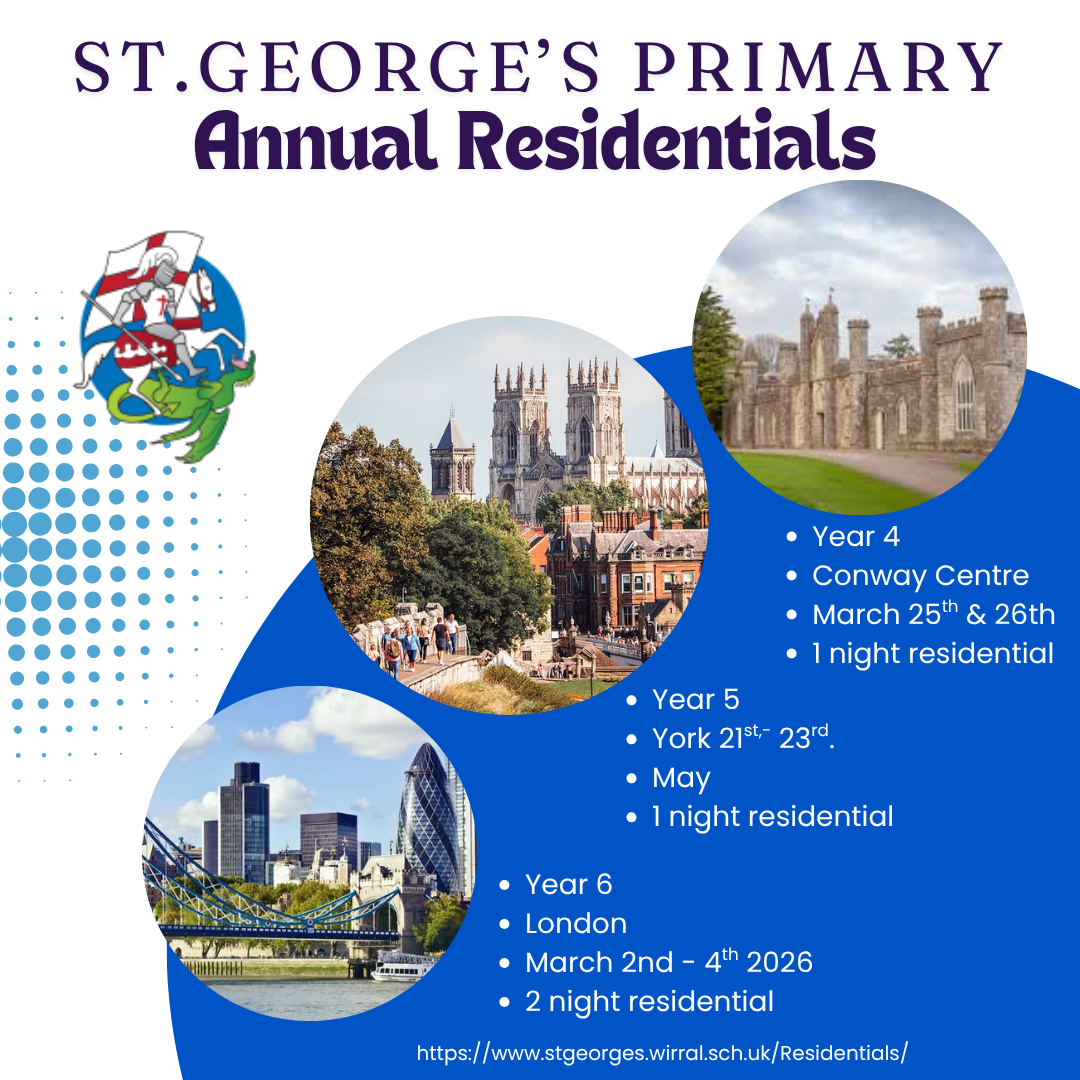Residential Education
Residential trips are a vital part of a child’s education. They offer a range of unique experiences and learning opportunities; the chance to break away from everyday routine and experience adventure, discovery and personal growth. At St George's, we offer such exciting opportunities in Years 4, 5 and 6.

Residentials (ID 1014)
-
Residential Education
Residential Education
Residential Education (Statutory Information - Curriculum menu tab)
-
Anglesey (Y4)
Anglesey (Y4)
-
York (Y5)
York (Y5)
-
London (Y6)
What Is A Residential Trip?
A residential trip is an immersive experience in which students stay away from home and school to participate in educational and recreational, often adventurous activities.
During a residential trip, students may engage in outdoor adventure, team-building exercises, environmental studies or cultural exploration, all of which can help develop a wide range of skills.

Developing Independence
One of the primary goals of a residential trip is to encourage independence and self-reliance in children. Being away from the comfort of their own homes and families allows the students to develop essential life skills like decision-making, problem-solving, and having more independent responsibility. Through the range of activities that are planned, children can learn to overcome challenges, build resilience, and become more confident in their abilities.
Enhancing Social Skills
Residential school trips allow children to forge new friendships, improve teamwork and enhance their social skills. By interacting with their peers in a different setting, students may learn to communicate more effectively, collaborate, and appreciate the value of teamwork. Taking part in team activities is crucial for children to develop skills such as empathy and respect, and this fosters a supportive and inclusive environment that extends beyond the trip.
Experiential Learning
At St George's, we believe hands-on learning experiences are key to academic and personal growth. Our residential trips offer a range of experiential learning opportunities that complete classroom-based learning. Experiential learning is so important and comes in the form of environmental studies, geography, history, science and so much more. Whether it’s exploring the natural world or engaging in workshops, children can gain knowledge in a unique and memorable way.
Environmental Awareness
Most residential trips take part in nature, enabling children to develop a deep understanding and appreciation for the environment. Through outdoor activities and environmental studies, they can understand the importance of protecting our planet which can lead to strong values as adults.
Personal Development
Taking part in a residential trip can do wonders for a child’s personal and physical development. Planned activities all promote physical fitness and instil discipline, perseverance and a positive attitude towards challenges. These types of experiences can help build character, enhance self-esteem and even spark interest in physical activities that could last a lifetime.
How Can Parents Get Involved?
Parental involvement is crucial in maximising the benefits of a residential trip. Encourage involvement before and after the trip to help reinforce educational objectives.
Parents can:
· Discuss pre-trip expectations with their child
· Engage in research and exploration together
· Involve children in packing and preparation
· Encourage post-trip reflections
Parents can even extend the learning by exploring follow-up activities like further research, museum visits or community service projects.


